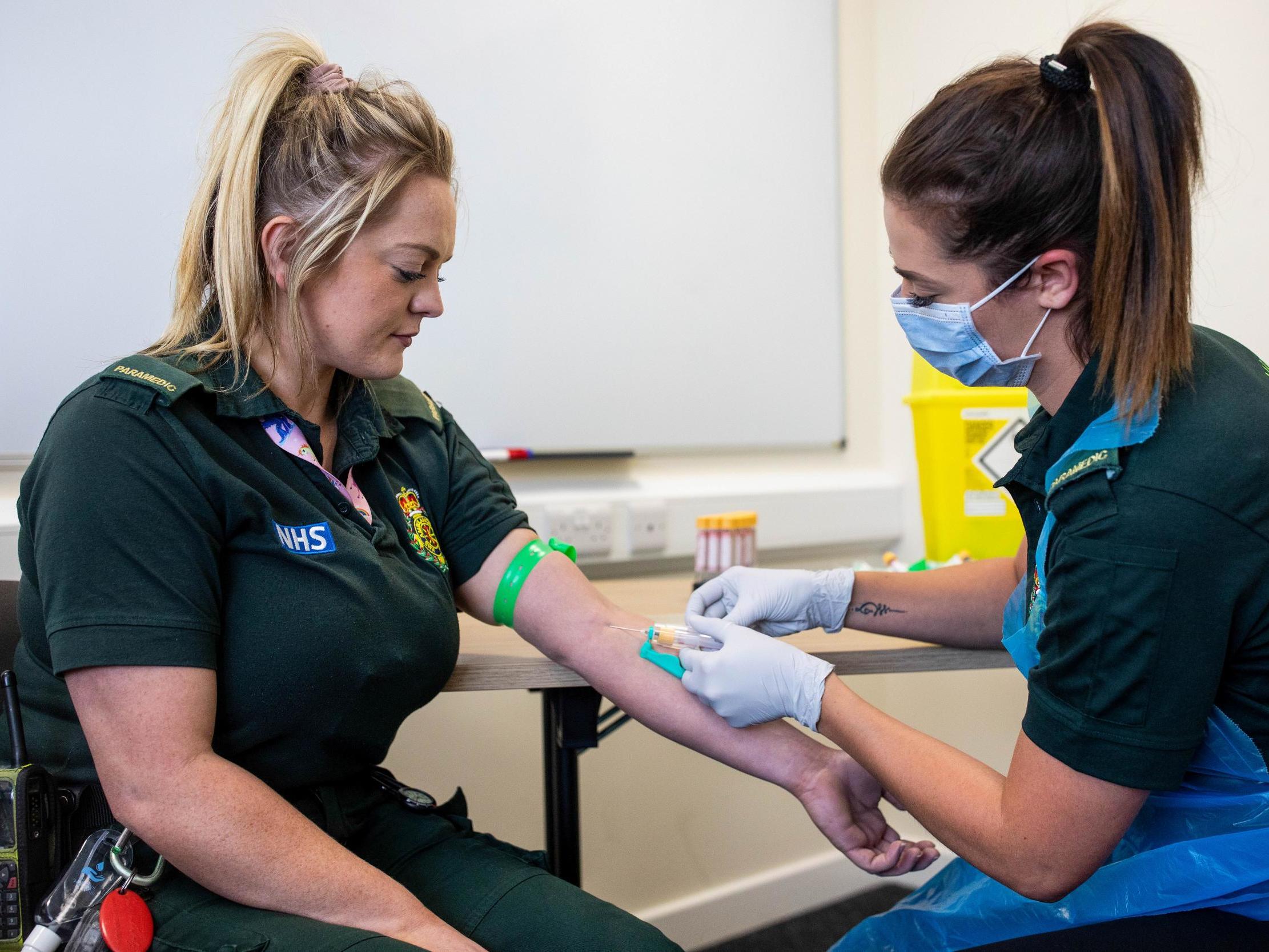Coronavirus: Antibody tests rolled out ‘without proper assessment’, experts say
Academics say positive result ‘does not indicate immunity’ and raise concerns about damage to public trust
Coronavirus antibody tests are being rolled out without “adequate assessment” and could damage public trust in wider testing, a group of leading academics has warned.
NHS and care staff and getting the antibody tests – aimed at showing whether a person has had the illness in the past – as part of the government’s testing programme.
But a letter from 14 senior academics and doctors, published in The British Medical Journal, has raised concerns about the performance of the tests and the way they are being introduced.
The group said the programme “is being rolled out at an unprecedented pace and scale without adequate assessment, potentially compromising public trust in pathology services in the future”.
The experts also said they were worried by the “unproved performance” of the tests – arguing that a positive result “does not indicate immunity” from Covid-19.
NHS England and NHS Improvement wrote to NHS trusts and their lab networks on 25 May, asking them to ramp up antibody testing capacity to thousands of samples a day.
However, the antibody test has “not yet been assessed to the standard typically required of a novel test”, according to the group of academics.
Some ministers have reportedly been keen to pursue the controversial idea of “immunity passports” to give health care staff and the wider workforce a green light to safety return to work.
“The concept of ‘immune passports’, allowing healthcare workers or others to work, has not been established,” the letter published in The British Medical Journal warned.
It added: “Those with a positive antibody test should still consider themselves at risk and follow infection control policies designed to prevent nosocomial spread [spread in a hospital] and risk of infection. There is, therefore, no benefit to healthcare organisations or to others in knowing the status of employees at present.”

Doctors will be able to request the antibody tests for patients if they think it is appropriate, but the group of 14 experts suggested the “push” for a wider roll-out was premature.
The letter added: “Given that routine testing of patients is neither clinically urgent nor meets a clear public health need, this push to introduce a non-evidence based test for uncertain gains risks inefficient use of scarce resources.”
Prof Sir John Bell from Oxford University, one of the government’s advisers on antibody tests, claimed the academics had underestimated the potential usefulness of the tests.
“We do need to know how many people out there have been infected and the only way to do this is antibody testing,” he told the BBC.
A Public Health England spokesman said: “Our evaluations have been completed in record time using the samples and tests that were available to us. We are confident that the volume of samples and methodology was of a high standard.”
In a statement to The British Medical Journal, the Department of Health and Social Care said: “We do not currently know how long an antibody response to the virus lasts, nor whether having antibodies means a person cannot transmit it to others.”
But the spokesman reiterated that antibody testing “will play an increasingly important role as we move into the next phase of our response to this pandemic”.
Join our commenting forum
Join thought-provoking conversations, follow other Independent readers and see their replies
Comments
Bookmark popover
Removed from bookmarks